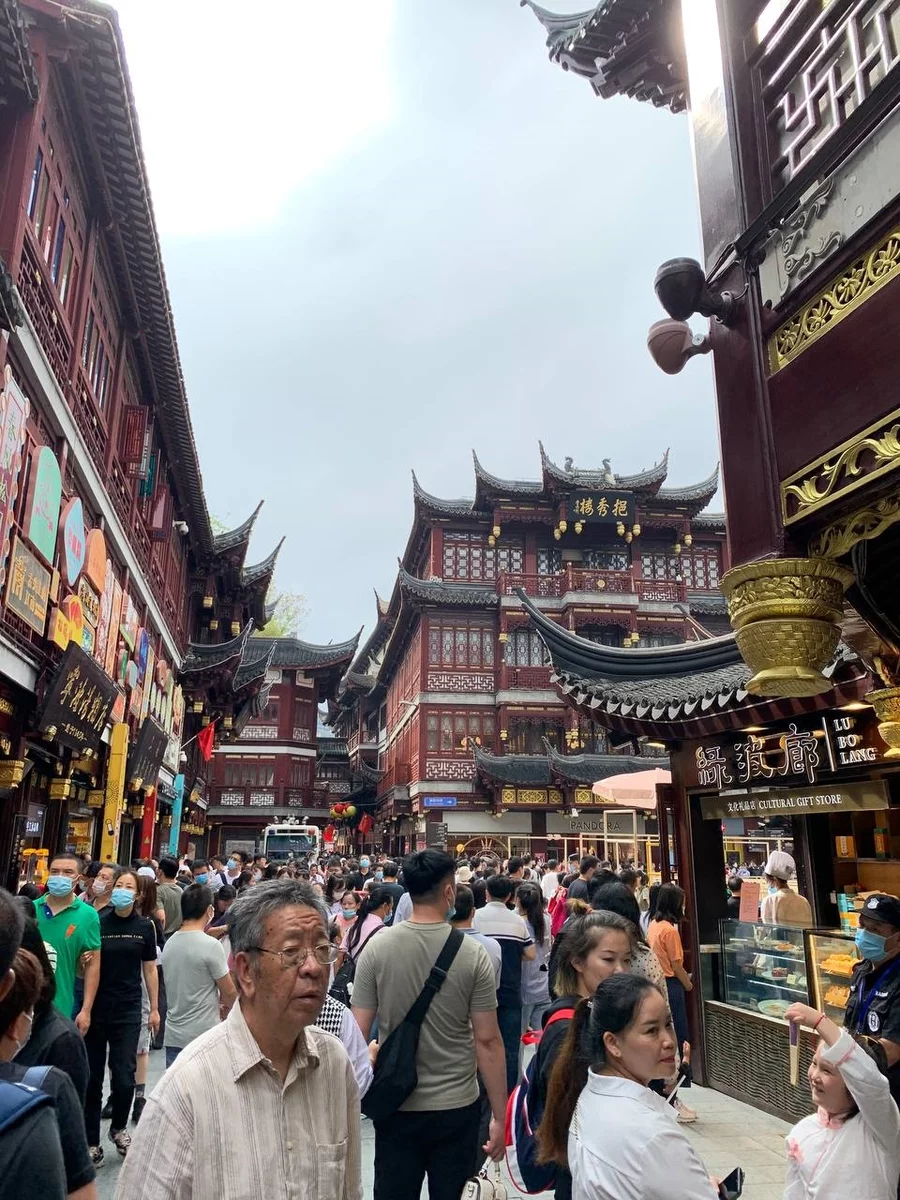
Is it worth moving to China? Personal experience of immigration, living, and doing business in China
Recently, it became known that visas to China can already be applied for—the country is fully open to tourists. But what do you need if you want to move to China? Is it expensive to live in the Celestial Empire? How can one open a business in China? And is it worth moving there at all? Read on for a personal story of immigration to China and life there.
“Now it’s quite difficult for a foreigner to open a company in China.”
Nazar, who has been living in China for 14 years, told us about life and doing business in the Celestial Empire.
— My name is Nazar. I am originally from Ukraine. For a long time, I lived in Belarus, where I graduated from university.
Then, in 2011, I entered the master’s program at Lanzhou Jiaotong University—that is, I went to China as an exchange student. How did it happen: my ex-wife went to Chinese language courses, and she was offered the chance to enter the university; she offered me, and as a result, I entered with her.
I studied for a Master’s degree for 4 years: the first year was aimed at learning the Chinese language, and the next 3 years were spent training directly in the specialty “enterprise management.”
After graduating from university, I decided to stay in China and start a business there; my wife did not want to stay, and at that point, our paths parted.

— So I opened my own company, rented an office, and started working in China. After opening a company in China, I was given a work visa, which, in principle, is a residence permit in the country.
It is important to note that this was the situation during the time I started the company, which was a very long time ago. Now, it’s quite difficult for a foreigner to open a business in China because banks don’t open accounts and you have to go through a very rigid vetting procedure. In general, a foreigner will not be able to open a company in his own name now: he has to have a trusted person in China for this purpose, i.e., a guarantor (the account can also be opened in the guarantor’s name). As for taxes, I have an accountant dealing with these issues, but the best description would probably be that I don’t even feel taxes here.
Now I live in Shenzhen (it’s a city in the south of China, on the border with Hong Kong—ed.).

Note. What are the possibilities for legalization in China:
- Employment by invitation.
- Work visa (work permit). To apply for it, you should have 1) a higher education diploma; 2) a certificate of criminal record; 3) a Chinese guarantor; 4) a rented office.
- Getting married to a Chinese citizen.
- Obtaining a family visa: it can be applied for if your spouse or relatives work or study here.
- Admission to a local university. This requires a minimum knowledge of the Chinese language. The cost of one course of study in China varies from three thousand to six thousand dollars. It’s also possible to study in China for free, having received, for example, a grant. Information about Chinese scholarships for studying in China can be found on the official website of the China Scholarship Council.
- Investing in China’s economy (from 500 thousand dollars).
As a rule, the tourist visa can be opened for 1–3 months. A tourist visa does not give the right to work; with this visa, you can only travel.
Regardless of the type of visa, every foreigner staying in China must have a temporary registration—it must be made upon arrival in the country within 24 hours (at the nearest police station at your place of residence). If you are staying in a hotel, you don’t need to think about it (hotels usually register foreigners automatically). But if you rent an apartment and plan to stay in China for a long time, you should definitely register with the police. Registration is done for the duration of your visa.
It is important to note that it is virtually impossible to obtain Chinese citizenship: except for incredible services to the country or by marriage. There is no issuance of citizenship by naturalization or even by right of land—only by right of blood. That is, if a foreigner gives birth to a child in China, he or she does not automatically become Chinese.
You can find out more information on the website of the Ministry of Foreign Affairs of China.



“In China, everyone can find conditions according to their own means.”
— The cost of renting a duplex apartment in Shenzhen, where I now live, is about $1,000 with utilities. Everything actually depends on the area, and there are different prices: you can rent an apartment for $2,000, you can rent it for $5,000, or you can rent it for $10,000.
Buying property in China offers absolutely no benefits. As for cost, the apartment I rent for $1,000, the landlord bought in 2019 for $500,000—as you understand, the profitability is minuscule.
Note. If you are thinking of buying property in China, you will need to prove that you have been living in China for more than a year and intend to live in the property you are buying. That is, buying property in China as an investment and renting it out is not allowed. Remember that you can only own one house in China. Also keep in mind that the «purchase» is really just a 70-year lease in China, which can then be renewed.
China’s Real Estate Crisis: The Popping price bubble and incomplete houses
— In general, in China, everyone can find conditions according to their own pocket—this is its advantage. If you compare it to Dubai, it is simply impossible to be a beggar there; in China, in principle, every stratum of the population can live well. Here you can go to a café for $2 and meet a millionaire; these boundaries have been erased here.
In general, to feel comfortable in the country, I think you have to earn around 20,000 yuan ($3,000).

“It’s very difficult to be in China for a long time without going out.”
— The three most difficult years, of course, were during the pandemic. It was very difficult mentally: at any minute, you could be quarantined if you happened to be near an infected person in the street; you had to take a COVID-19 test every day. In the first year, the quarantine was 14 days, in the second year, it was reduced to 7 days. Travel around China was severely restricted: if you flew to Shanghai or another city, you could easily be shut down for quarantine. It was virtually impossible for foreigners to enter China. I have an Armenian friend who traveled to China for 2 months—he has probably gone through every quarantine possible.
Note. At this moment, China is fully open. Since March 15, foreigners have again begun to be issued visas.

— It’s very difficult to be in China for a long time without going out. But once you go somewhere, gain energy, and come back, you realize how good China is and how far ahead of the curve it is.
China teaches you how to do business. How it shows: in other countries, people have limited opportunities and are usually hung up on one product, but in China, you can do accessories one day, miners the next day, cars the day after, and so on. — Because here you have the whole world market in front of your eyes, you see everything.
I’m speaking from the point of view of someone who moved here a long time ago, at a time when we needed people here. Now, I don’t know whether it is worth moving to China.
There are very few foreigners living in China right now: during the pandemic, everyone who had visa problems, who worked illegally—and there used to be 90% more of these people than those who worked officially—was kicked out of the country. Those people have all left here.
In terms of business, things are not as easy now as they were before. Even four or five years ago, for instance, you could obtain a business visa, come here, buy something, and sell it to someone; however, today, many businesses have switched to online shopping, so there is no longer a specific reason to fly to China.
In general, before the pandemic, people of different professions were going to China to work. Now there is no work here; the country is not ready to accept anyone yet. But who knows? Maybe things will change.



Do you want to share your personal experience of relocating and living in another country? Email us at info@realting.com. We will be happy to tell your story.
Author
I am responsible for editorial work. I write expert interviews and guides.























